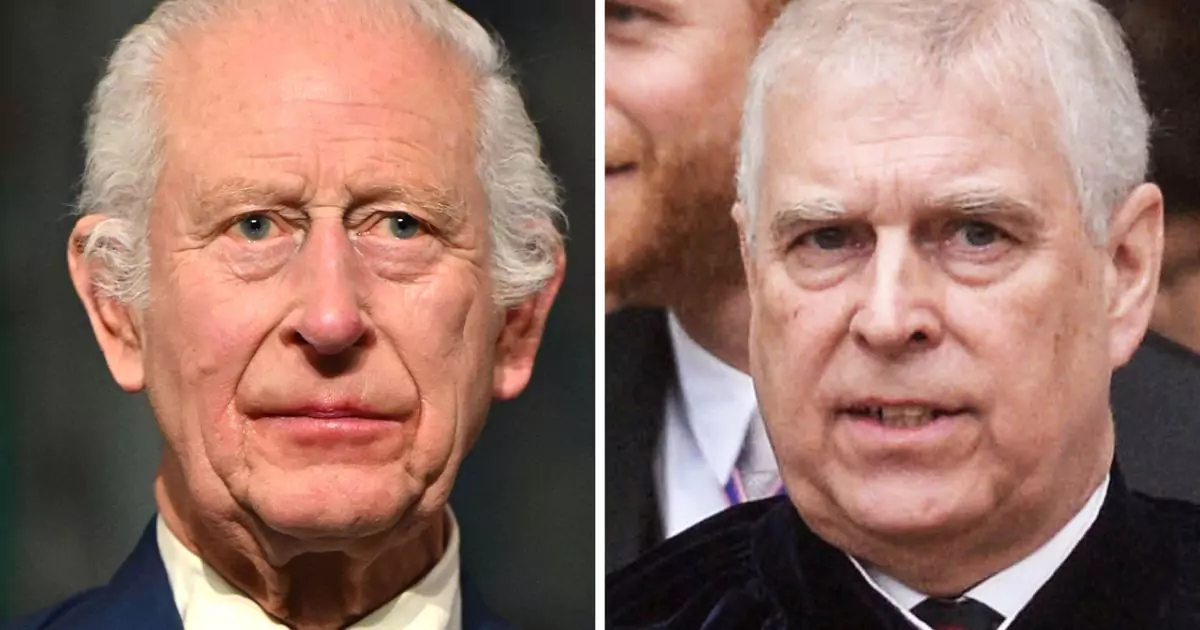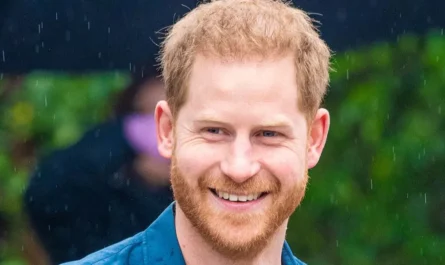The British monarchy is no stranger to public scrutiny, with its members often finding themselves at the center of media storms. Recently, a new chapter of royal intrigue unfolded, highlighting tension between King Charles III and his brother, Prince Andrew. According to a royal author, King Charles has been left “humiliated” after failing to remove Prince Andrew from the prestigious Royal Lodge, a move that has sparked widespread interest and debate. This article delves into the details of the dispute, its historical context, and its potential impact on the monarchy.
A Royal Family Divided
The tension between King Charles III and Prince Andrew is rooted in the evolving dynamics within the royal family. Following the passing of Queen Elizabeth II, Charles ascended to the throne with the promise of streamlining the monarchy. His vision, often referred to as the “slimmed-down monarchy,” includes reducing the number of working royals and ensuring efficient use of royal resources.
The Royal Lodge, located in Windsor Great Park, has been Prince Andrew’s residence since 2003. The 30-room mansion is a significant royal asset, but Andrew’s association with controversies, including his links to convicted sex offender Jeffrey Epstein, has made him a contentious figure within the monarchy. King Charles’s alleged efforts to reassign the Lodge to Prince William, second in line to the throne, were seen as part of this broader effort to reshape the royal estate. However, the plan hit a roadblock when Prince Andrew reportedly refused to vacate the premises.
The Role of the Royal Lodge in Monarchical Politics
The Royal Lodge holds deep historical and emotional significance within the royal family. Previously the home of Queen Elizabeth, the Queen Mother, the property became a focal point for Prince Andrew after he signed a 75-year lease for it in 2003. He invested millions of his personal wealth in refurbishing the property, adding to his sense of entitlement to remain there.
However, as public sentiment towards Prince Andrew soured in recent years, so did the perception of his continued residence in such a grand estate. Critics argue that the Royal Lodge, an emblem of royal privilege, should be reallocated to royals actively serving the Crown, such as Prince William and his growing family.
Prince Andrew’s Alleged Defiance
Despite mounting pressure, Prince Andrew has stood firm. Reports suggest he cited the financial investments he made in the property as a reason for refusing to move. Furthermore, Andrew’s non-working royal status complicates matters. Unlike working royals who are financially supported by the Sovereign Grant, Andrew funds his lifestyle independently, albeit with limited income after stepping back from public duties.
This defiance, however, poses a unique challenge for King Charles, who is keen on reshaping the monarchy’s image while balancing family ties. Public opinion often leans against Prince Andrew, yet the complexities of royal property agreements and familial loyalty have tied the King’s hands.
King Charles’s Perspective and Challenges
King Charles has been navigating turbulent waters since his coronation. As a monarch, he is not just the head of state but also a family patriarch, responsible for balancing duty with personal relationships. Removing his brother from the Royal Lodge might align with his vision of a modernized monarchy, but it risks further alienating Andrew and deepening familial rifts.
Moreover, Charles’s failure to enforce the move has opened him to criticism, with some interpreting the episode as a sign of weak leadership. The monarchy thrives on projecting unity and strength, and such public disputes can undermine its image.
Public Reactions
The British public and global audiences remain sharply divided on the issue. While some empathize with King Charles’s predicament, others view Prince Andrew’s stance as a symbol of unchecked privilege within the monarchy. Calls for greater accountability have intensified, with many questioning why non-working royals like Andrew retain access to such luxurious residences.
On the other hand, some royalists argue that airing such disputes in public only harms the monarchy. They believe that King Charles and Prince Andrew should resolve their differences discreetly, avoiding further damage to the royal brand.
Implications for the Monarchy
This episode highlights broader issues facing the British monarchy in the 21st century. The institution has long relied on public goodwill, yet its relevance is increasingly questioned in modern society. Incidents like the Royal Lodge dispute risk reinforcing negative stereotypes about royal entitlement and opulence, potentially alienating younger generations.
Furthermore, King Charles’s struggle to evict Prince Andrew underscores the challenges of implementing meaningful reforms within the monarchy. While the slimmed-down monarchy vision has been praised by some, its execution requires careful navigation of legal, familial, and public relations hurdles.
The Role of the Media
The media has played a pivotal role in amplifying the drama surrounding the Royal Lodge. Headlines describing King Charles as “humiliated” add fuel to the fire, framing the narrative as a personal failure for the monarch. While such portrayals attract readership, they also risk misrepresenting the nuanced reality of royal politics.
Royal experts have pointed out that disputes like these are not uncommon within royal families. However, the British monarchy’s position as a public institution means that its internal disagreements are often scrutinized far more intensely than those of private families.
What Lies Ahead?
The resolution of this dispute remains uncertain. If Prince Andrew continues to resist, King Charles may face a tough decision: should he escalate the matter legally, risking an even bigger public fallout, or should he compromise to preserve family harmony? Either option comes with significant risks.
For the monarchy, this incident serves as a reminder of the delicate balance it must strike to maintain its relevance and credibility. While traditions and grandeur are central to its appeal, adapting to contemporary expectations is crucial for its survival.
A Modern Monarchy Under Pressure
The Royal Lodge dispute is more than just a family quarrel—it is a reflection of the shifting dynamics within the British monarchy. As King Charles attempts to modernize the institution, he faces challenges that test not only his leadership but also the monarchy’s ability to adapt to a changing world.
Whether the Royal Lodge saga will end in resolution or further controversy remains to be seen. What is certain, however, is that the British monarchy will continue to be a subject of fascination and debate, navigating the fine line between tradition and modernity in the public eye.

